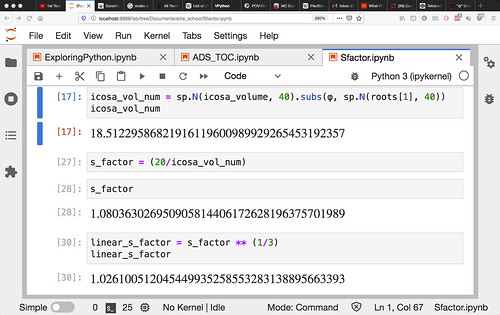This notion that we should divert attention back to the Platonics and sister polys, has a few champions in every era, however the question is what have we new to say about this vista? The theory of Regular Polytopes was nailed down in H.S.M. Coxeter's book by that title, anchoring a consequent literature of n-dimensional graph theory, or topology we might as well call it. Don't we teach that already?
That a next American pragmatist, literally an inventor, would present with a lot of new chatter about polyhedrons, was not necessarily a welcome development in Europe and/or the UK, except in rarefied circles. Germany and the Bauhaus School still had a history of architecture to tell, and the geodesic domes had to be part of that, tracing to the Walther Bauersfeld planetarium on the roof of Zeiss company headquarters in Jena. RBF could remain "an American architect" who popularized dome designs.
The graph of famous inventors in structural engineering
had to include the man who patented the octet truss, popularized by
other architects and likewise researched by A.G. Bell, the telephone
guy.
Peter Sloterdijk, the famous German language contemporary philosopher, embarked upon his Spheres trilogy: Globes, Bubbles and Foams (each a volume), with our American scattered throughout, a vertex oft returned to. That work, like Hugh Kenner's The Pound Era suggested the architect-only view was far too narrow.
RBF was in fact a polymath whose cross-disciplinary forays were a way of unlocking new synergies. A pure mathematician might look askance at the tensegrities and wonder at their entanglement with physical forces. A physicist might wonder how RBF could be anything but a crank if he actually believed in ESP, which he seemed to. The risk was opening the philosophy department to ridicule, whereas it had already settled on its particular risk avoiding canon.
On the other hand, history moves on, and in the rear view mirror we have more thinkers to accommodate. What looked too embarrassing to include in one era, becomes embarrassing to exclude in a next. A survey course in philosophy without Bucky, is getting to seem like a survey statistics course without Bayes. The priors have changed, as the machines keep learning.
What was new about the polyhedrons had to do with the simplex, the regular tetrahedron in particular, and its ability to divide evenly into the others, volume-wise, even more successfully than the cube, the new "volume three" in this system.
An octahedron with the same edges, is four times the unit volume, a rhombic dodecahedron six times, with its long face diagonals our unit tetrahedron edge.
Although the logic was there, and the context (closest packed geodesic spheres in a lattice, the octet truss), it was elementary, more like Wittgenstein's remarks on the foundations of mathematics. Words like "concave" and "convex" and "spin" came in for grammatical investigation within a growing web of semi-tautologies, metaphorically cast. Synergetics would have the hallmarks of a philosophy, and that would take some grappling with.
However the Continentals and the Analytics were both averse to this new American Pragmatism -- a lineage uncoiling forward through Rorty's work (one of my profs) -- but for different reasons.
From Europe's point of view, America had outlived its role as an exotic upstart, a revolutionary presence, and was settling into the familiar mode of Roman imperialism, a model dear to many UKers but not one to admire or take instruction from.
Why rock the boat with a retreat to Transcendentalism, with which this new flavor of pragmatism was blended? Why think like Thoreau or Margaret Fuller, and question an expanding empire?
Phrases like "legally piggily" (a whole chapter in Critical Path) melded with critical attacks on lawyer-capitalism and specialization itself... how could such writings be good for the establishment?
The mythos and ethos here, questioning authority at every turn, was more hippie-bohemian, even if somewhat engineering-savvy, and therefore too counterculture for any aspiring button-down corporate culture, what many universities aspired to be at the time, and still do to this day. Yet Bucky always dressed like a banker.
Had the new language games with polyhedrons been buried in a jocular Scientific American article, say by J.H. Conway or Martin Gardner, and filed under recreation, then the spark might have more easily spread, but perhaps fizzled much sooner.
The problem people had with this philosophy is that the new casting of the polyhedrons in a nested arrangement was supposed to be significant to children and to the future of humanity. It was supposed to be important, and dared to clamor for attention.
Teachers did not want to positively reinforce this message as it was subversive to their ongoing dismissal. "Don't encourage disruptive behavior." "Ignore attention-seeking behavior."
The prospect of introducing some positive futurist science fiction within the core curriculum would have many implications and the easier course was to keep the lid on these developments. Elon Musk proved disruptive in this regard as well, even if his plans were less grounded in a philosophy. People were dreaming about the future again, and contrasting that with what the politicians felt able (i.e. unable) to deliver.
The chief advocates for introducing these education reforms no longer had their charismatic leader and their army seemed tiny and unimpressive, almost invisible. The juggernaut of mainstream philosophy could afford to dismiss this new philosophy as irrelevant, therefore, at least for the time being. That seemed to be the thinking, looking back.







